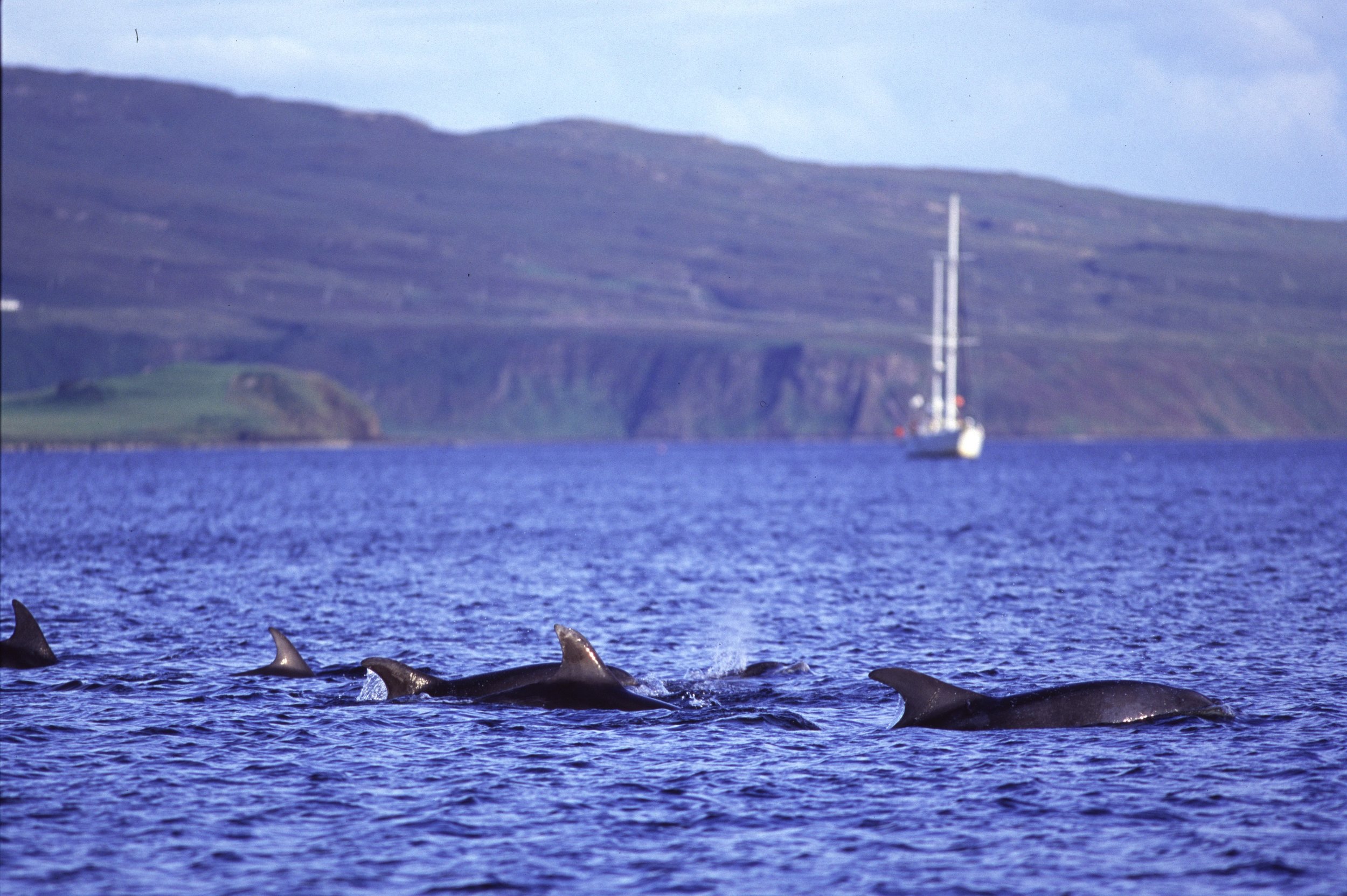Become a #BluePlanetChampion with HWDT
Following last week’s poignant final episode of Blue Planet II, the #BluePlanetChampion pledge has taken the internet by storm, rousing organisations and individuals alike to call on the UK Governments to take action. With our oceans now resembling something of a ‘toxic soup’, with an average one million pieces of plastic for every square mile of water, the pledge calls for the UK Governments to take a global lead on tackling pollution, alongside advocating for at least 30% of global oceans to become protected marine wildlife sanctuaries.
Only last year, a member of the West Coast Community of killer whales in the Scottish Hebrides was found dead, stranded on the Isle of Tiree. She was identified by HWDT as the well-known individual Lulu. Although Lulu died from becoming entangled in creel rope, subsequent scientific analysis conducted by our research partners, SMASS (Scottish Marine Animal Stranding Scheme), revealed the catastrophic impact pollution can have on these majestic creatures. Lulu had over 100 times the considered safe levels of an industrial pollutant called polychlorinated biphenyl (PCB) in her body, one of the highest levels ever recorded in this species. These toxins build up in killer whales and other apex predators through a process called bioaccumulation, to the extent that some of the pollutants will offload into the mother’s milk, becoming deadly to their calves, or even worse causing infertility. Sadly, Lulu never reproduced. In fact, the West Coast Community have never been seen with any calves in the 25 years they have been monitored by HWDT, and research shows no sign that they interact with other pods of killer whales. This is a gloomy foreboding for the remainder of Lulu’s pod.
HWDT believes that anyone can contribute to marine conservation, and we have plenty of opportunities for you to be actively involved in our marine mammal research.
You can take part in our Cetacean Research Programme, joining our expert crew on our research vessel, Silurian. Silurian holds the largest database of its kind in UK waters, providing data that is critical to inform Government policies that influence the national and global protection of our ocean. By volunteering with us, YOU can help provide the evidence to support marine conservation in Scottish waters, and become a #BluePlanetChampion.
If you are lucky enough to see a whale, dolphin or porpoise in the Hebrides, you can report your sightings through Whale Track, our community sightings initiative. We rely on sightings reports and photographs from the public, wildlife operators and fishermen to help track the movements of coastal species such as bottlenose dolphins and uncover the mysteries of rare visitors including humpback and killer whales.
Our research and engagement programmes are sustained by our supporters and we rely on your generosity to continue our work to ensure cetaceans are protected and valued throughout the Hebrides. If you’re not able to volunteer directly, you can sign up as a member, adopt a whale or make a donation.
For more information on how you can become a #BluePlanetChampion through HWDT, see the links below:




